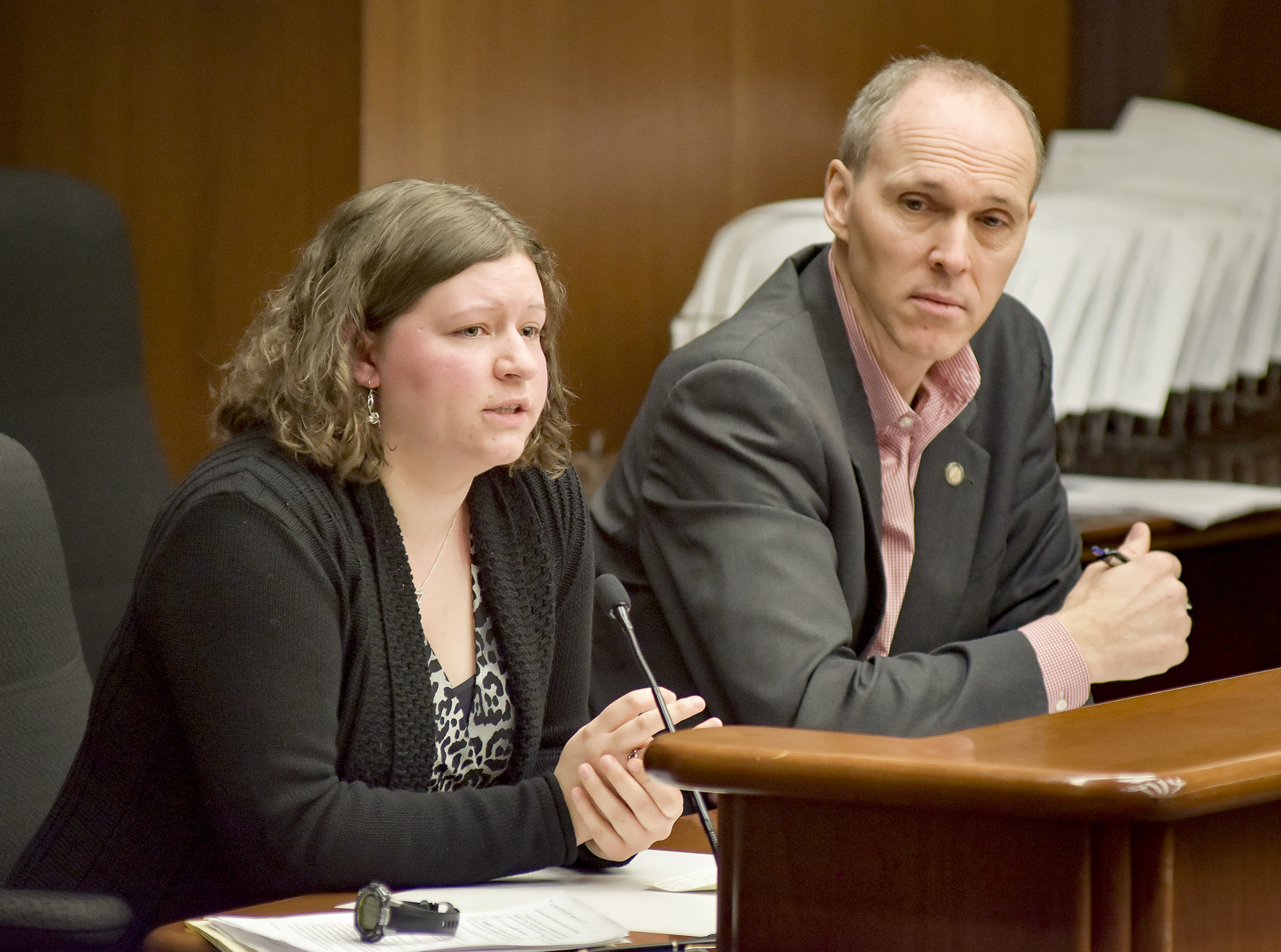Is current law properly addressing student-athlete concussions? Study sought for answers

Kayla Meyer suffered two concussions playing hockey as a young teenager. Seven years, 10 neurologists, and countless tests and medications later, the Minnesota State University, Mankato undergraduate said she still has an ever-present headache, fatigue, trouble sleeping and other neurological problems caused by the injuries.
Meyer began advocating for other young athletes at risk of brain injury in 2011, when she testified in favor of legislation — that ultimately became law — that requires coaches to remove students with concussion symptoms from sports until cleared by a medical professional, she told the House Health and Human Services Reform Committee Tuesday.
Despite the measures, there hasn’t been sufficient oversight or reporting to know if the law is working as intended or could be improved by new medical research, said Dr. Francis Shen, an associate professor at the University of Minnesota Law School who researches the intersection of law and neuroscience.
HF1714, sponsored by Rep. Rod Hamilton (R-Mountain Lake), would establish a working group to evaluate the implementation of the 2011 legislation and study statewide occurrences of brain injuries in youth sports, as well as their prevention, evaluation and treatment.
It was approved as amended and referred to the House Education Innovation Policy Committee. Its companion, SF1477, sponsored by Sen. Jim Abeler (R-Anoka), awaits action by the Senate Health and Human Services Finance and Policy Committee.
The bill calls for a $600,000 appropriation to conduct the studies and $300,000 to fund five pilot programs intended to improve the brain health of student athletes across the state.
Pilot programs throughout the state would address the coordination of support services, the identification, assessment, and treatment of injuries, or policy reform, Shen said.
“Since 2011, we have learned a lot about traumatic brain injury,” and the grant program would help connect students directly to those advancements, he said.
Participation in the studies would be optional for schools, parents, athletes, and other organizations, and no new reporting requirements would be created.
The working group’s final report, due at the end of 2019, would propose a state model for reducing brain injuries in youth sports. In addition to addressing the best ways to identify, reduce, and prevent concussions, the report would also look at the best way for students to return to school and athletics after an injury.
“They only have one brain and they need to take care of it for the rest of their lives,” Meyer said.
Related Articles
Search Session Daily
Advanced Search OptionsPriority Dailies
Ways and Means Committee OKs proposed $512 million supplemental budget on party-line vote
By Mike Cook Meeting more needs or fiscal irresponsibility is one way to sum up the differences among the two parties on a supplemental spending package a year after a $72 billion state budg...
Meeting more needs or fiscal irresponsibility is one way to sum up the differences among the two parties on a supplemental spending package a year after a $72 billion state budg...
Minnesota’s projected budget surplus balloons to $3.7 billion, but fiscal pressure still looms
By Rob Hubbard Just as Minnesota has experienced a warmer winter than usual, so has the state’s budget outlook warmed over the past few months.
On Thursday, Minnesota Management and Budget...
Just as Minnesota has experienced a warmer winter than usual, so has the state’s budget outlook warmed over the past few months.
On Thursday, Minnesota Management and Budget...